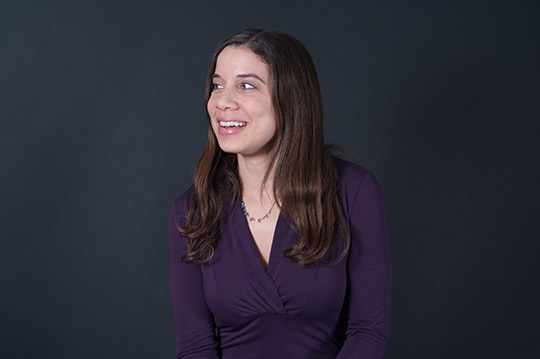Her Salary is Good. Her Preparation Was Priceless
Rhena Jasey earns $125,000 a year as a teacher. She considers her years at TC even more valuable.
Rhena Jasey earns $125,000 a year as a teacher. She considers her years at TC even more valuable.
If Rhena Jasey’s face looks familiar, that’s probably because you’ve seen her on the front page of The New York Times and, more recently, in the documentary film American Teacher. She’s the high-powered young Harvard graduate who’s teaching at The Equity Project, the charter middle school that pays its teachers $125,000 per year.
That résumé might suggest that Jasey came to teaching through a fast-track alternative certification program, but not so: She holds two master’s degrees from Teachers College and is a staunch advocate of the deep preparation she received there.
“There were programs I didn’t even consider applying to because you got your master’s degree in one year,” says Jasey, whose mom, Mila Jasey, is a New Jersey State Assemblywoman on the education committee. “Eight classes and you’re a master. That’s crazy. TC insists that you have a range of experiences and work with all aspects of education—counseling, methods of teaching, multiculturalism—in order to become truly effective and well-rounded.”
Jasey says she still uses lessons she learned in TC courses on school counseling (a big plus in her first job, at a school that had only one part-time social worker for 450 students), how to use art in classroom instruction, conflict resolution and science teaching methods.
But “by far the most valuable experience was working with strong cooperating teachers who were very generous with their time and ideas, and who shared responsibility with the student teachers placed in their classrooms,” she says. “I realize how significant that is now that I’m a teacher with my own classroom.”
For example, Jasey received one of her TC field placements at an inclusion school, where special-needs students were learning in mainstream classrooms. “Being paired with a master teacher who knew how to handle special-needs kids, and watching that person respond effectively, provides experiences you can’t learn from reading a book,” she says. “When a child is lying on the floor, acting out in the middle of your math lesson, that’s different from reading ‘How to Deal with Children Who Are Sad.’”
Of course, other education schools offer field placements, too—but “TC is unique in its commitment to public education, and as a result it has these great relationships with public schools in New York City,” Jasey says. “And that enables preservice teachers to learn in exactly the same environment they’ll be working in if they stay in New York City. That’s priceless.”
Published Friday, Apr. 13, 2012
